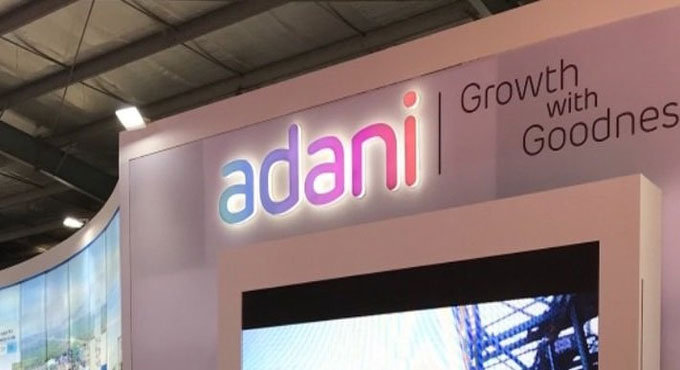What Lies Ahead For Gautam Adani, The Business Tycoon For Whom Massive Losses Are A Rare Setback

Indian billionaire Gautam Adani grinned as he posed this week for photos with Israeli leader Benjamin Netanyahu after acquiring one of the country’s main ports, in Haifa.
“I promise you that in the years to come, we will transform the skyline we see around us,” said Adani, his manner upbeat even as his business empire was losing billions. Investors have been dumping Adani shares for more than a week after U.S. short-selling firm Hindenburg Research put out a report alleging his businesses have engaged in fraud and stock price manipulation. The Adani group has denied this.
Before the debacle, Adani, 60, was Asia’s richest man and the third wealthiest in the world, according to Bloomberg’s Billionaires Index. Not anymore.
The massive losses are a rare setback for the coal mining tycoon from western India’s Gujarat state and raise questions about what lies ahead.
Expansion has been at the heart of Adani’s success story. The son of a middle-class family in the Gujarat capital, Ahmedabad, he quit college to become a diamond trader in the country’s financial capital, Mumbai. He returned home to join his brother in importing plastics before establishing Adani Enterprises in the 1980s, trading in everything from shoes to buckets.
Adani shifted to investing in ports, construction and coal mining as India opened up its economy in the 1990s. A new middle class emerged and the ambitious businessman placed bets on providing energy to serve them.
Adani’s first big project, Mundra Port, is now India’s largest commercial port and he is the country’s biggest private port operator. Within a decade, he also became India’s largest developer and operator of coal mines.
Today, Adani companies also operate airports in major cities, build roads, generate electricity, manufacture defense equipment, develop agricultural drones, sell cooking oil and run a media outlet. He has his eyes set on becoming the world’s largest renewable energy player by 2030.
Citing market volatility, late Wednesday his flagship Adani Enterprises scrapped a $2.5 billion share offering that, despite the bloodletting in the group’s shares and a 28% plunge that day in its own share price, had been oversubscribed.
In a video address Thursday, Adani said the share offering was canceled to “insulate investors from potential losses.”
“For me, the interest of my investors is paramount and everything else is secondary,” he said.
The share offering was seen as a test of investor confidence in the self-made industrialist, whose ascent has been celebrated as a symbol of India’s economic ambitions. The Adani Group said in a statement that canceling the offering would not “have any impact on our existing operations and future plans.”
The Adani Group said its balance sheet was “very healthy” and its history of servicing debt was “impeccable.”
Still, Brian Freitas, a New Zealand-based analyst with Periscope Analytics who has researched the Adani Group, said the collapse in share prices for India’s second-largest conglomerate may hinder its future plans for expansion.
“It’s going to be difficult for them to raise new money,” he said.
Adani shares are still losing value. Shares in Adani Enterprises tumbled 27% Thursday, while stock in six other Adani companies fell 5%-10%.
The tycoon, who favors a plain white shirt and dark trousers over fancy dress and is said to be affable and quiet spoken, slid from being the world’s third richest man to the 13th as his fortune sank to $72 billion, according to Bloomberg’s Billionaire Index. Prior to the Hindenburg report, his net worth was about $120 billion.
More vitally, the company is now without the funds it had hoped to raise in this week’s offering. Companies often launch such share offerings to finance growth while reducing debt.
“Thanks to the short-seller, Adani’s plans will get slowed down significantly,” said R.N. Bhaskar, a journalist who wrote a biography on Adani.
Analysts say that rapid expansion has largely been fueled by borrowing. The group’s debt stands at $30 billion, out of which $9 billion is from Indian banks, the group’s chief financial officer said recently.
After the stock rout of the past week, lenders may deem his group high risk and toughen their criteria for borrowing, like demanding higher interest rates or more collateral, said Freitas.
“Equity investors are going to be wary because the stock isn’t doing well — if they can’t raise equity, they will have to go to the debt market,” he added. “Given the situation, foreign lenders will think twice before lending any new money to Adani.”
Despite Adani’s longstanding ties with Prime Minister Narendra Modi, a fellow Gujarati, and other powerful politicians, the government has so far remained silent on his recent troubles even as pressure from the political opposition for an investigation into Adani’s situation grows.
In recent years, Adani has pumped money into sectors like agriculture, defense and renewable energy — all seen as high priorities for the Indian government.
Like Adani’s commitment to the port in Israel’s Haifa, many of the group’s overseas infrastructure projects, in countries such as Sri Lanka and Tanzania, have served as an Indian counterweight to rival China’s holdings.
The Haifa deal was a coup for India, located close to another port managed by the Shanghai International Port Group.
“India is working with great fervor with Israel on defense and technology, and Adani now has a port there. You think the Indian government can sniff at that?” said Bhaskar. “The thing is, you can’t wish away Adani — because he is indispensable at this point.”
He expects Adani to remain undaunted.
“The more challenging a situation gets, the more defiant and creative he becomes to overcome it,” Bhaskar said.
(Except for the headline, India.com has not edited the AP copy)







